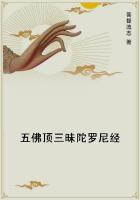FOR a time—at all events until my book should be completed, which would be the work of several months—I took up my abode in my aunt's house at Dover; and there, sitting in the window from which I had looked out at the moon upon the sea, when that roof first gave me shelter, I quietly pursued my task.
In pursuance of my intention of referring to my own fictions only when their course should incidentally connect itself with the progress of my story, I do not enter on the aspirations, the delights, anxieties, and triumphs of my art. That I truly devoted myself to it with my strongest earnestness, and bestowed upon it every energy of my soul, I have already said. If the books I have written be of any worth, they will supply the rest. I shall otherwise have written to poor purpose, and the rest will be of interest to no one.
Occasionally, I went to London; to lose myself in the swarm of life there, or to consult with Traddles on some business point. He had managed for me, in my absence, with the soundest judgement; and my worldly affairs were prospering. As my notoriety began to bring upon me an enormous quantity of letters from people of whom I had no knowledge—chiefly about nothing, and extremely difficult to answer—I agreed with Traddles to have my name painted up on his door. There, the devoted postman on that beat delivered bushels of letters for me; and there, at intervals, I laboured through them, like a Home Secretary of State without the salary.
Among this correspondence, there dropped in, every now and then, an obliging proposal from one of the numerous outsiders always lurking about the Commons, to practise under cover of my name (if I would take the necessary steps remaining to make a proctor of myself), and pay me a percentage on the profits. But I declined these offers; being already aware that there were plenty of such covert practitioners in existence, and considering the Commons quite bad enough, without my doing anything to make it worse.
The girls had gone home, when my name burst into bloom on Traddles's door; and the sharp boy looked, all day, as if he had never heard of Sophy, shut up in a back room, glancing down from her work into a sooty little strip of garden with a pump in it. But there I always found her, the same bright housewife; often humming her Devonshire ballads when no strange foot was coming up the stairs, and blunting the sharp boy in his official closet with melody.
I wondered, at first, why I so often found Sophy writing in a copy-book; and why she always shut it up when I appeared, and hurried it into the table-drawer. But the secret soon came out. One day, Traddles (who had just come home through the drizzling sleet from Court) took a paper out of his desk, and asked me what I thought of that handwriting?
‘Oh, DON'T, Tom!’cried Sophy, who was warming his slippers before the fire.
‘My dear,’returned Tom, in a delighted state,‘why not? What do you say to that writing, Copperfield?’
‘It's extraordinarily legal and formal,’said I.‘I don't think I ever saw such a stiff hand.’
‘Not like a lady's hand, is it?’said Traddles.
‘A lady's!’I repeated.‘Bricks and mortar are more like a lady's hand!’
Traddles broke into a rapturous laugh, and informed me that it was Sophy's writing; that Sophy had vowed and declared he would need a copying-clerk soon, and she would be that clerk; that she had acquired this hand from a pattern; and that she could throw off—I forget how many folios an hour. Sophy was very much confused by my being told all this, and said that when‘Tom’was made a judge he wouldn't be so ready to proclaim it. Which‘Tom’denied; averring that he should always be equally proud of it, under all circumstances.
‘What a thoroughly good and charming wife she is, my dear Traddles!’said I, when she had gone away, laughing.
‘My dear Copperfield,’returned Traddles,‘she is, without any exception, the dearest girl! The way she manages this place; her punctuality, domestic knowledge, economy, and order; her cheerfulness, Copperfield!’
‘Indeed, you have reason to commend her!’I returned.‘You are a happy fellow. I believe you make yourselves, and each other, two of the happiest people in the world.’
‘I am sure we ARE two of the happiest people,’returned Traddles.‘I admit that, at all events. Bless my soul, when I see her getting up by candle-light on these dark mornings, busying herself in the day's arrangements, going out to market before the clerks come into the Inn, caring for no weather, devising the most capital little dinners out of the plainest materials, making puddings and pies, keeping everything in its right place, always so neat and ornamental herself, sitting up at night with me if it's ever so late, sweet-tempered and encouraging always, and all for me, I positively sometimes can't believe it, Copperfield!’
He was tender of the very slippers she had been warming, as he put them on, and stretched his feet enjoyingly upon the fender.
‘I positively sometimes can't believe it,’said Traddles.‘Then our pleasures! Dear me, they are inexpensive, but they are quite wonderful! When we are at home here, of an evening, and shut the outer door, and draw those curtains—which she made—where could we be more snug? When it's fine, and we go out for a walk in the evening, the streets abound in enjoyment for us. We look into the glittering windows of the jewellers’shops; and I show Sophy which of the diamond-eyed serpents, coiled up on white satin rising grounds, I would give her if I could afford it; and Sophy shows me which of the gold watches that are capped and jewelled and engine-turned, and possessed of the horizontal lever-escape-movement, and all sorts of things, she would buy for me if she could afford it; and we pick out the spoons and forks, fish-slices, butter-knives, and sugar-tongs, we should both prefer if we could both afford it; and really we go away as if we had got them! Then, when we stroll into the squares, and great streets, and see a house to let, sometimes we look up at it, and say, how would THAT do, if I was made a judge? And we parcel it out—such a room for us, such rooms for the girls, and so forth; until we settle to our satisfaction that it would do, or it wouldn't do, as the case may be. Sometimes, we go at half-price to the pit of the theatre—the very smell of which is cheap, in my opinion, at the money—and there we thoroughly enjoy the play: which Sophy believes every word of, and so do I. In walking home, perhaps we buy a little bit of something at a cook's-shop, or a little lobster at the fishmongers, and bring it here, and make a splendid supper, chatting about what we have seen. Now, you know, Copperfield, if I was Lord Chancellor, we couldn't do this!’
‘You would do something, whatever you were, my dear Traddles,’thought I,‘that would be pleasant and amiable. And by the way,’I said aloud,‘I suppose you never draw any skeletons now?’
‘Really,’replied Traddles, laughing, and reddening,‘I can't wholly deny that I do, my dear Copperfield. For being in one of the back rows of the King's Bench the other day, with a pen in my hand, the fancy came into my head to try how I had preserved that accomplishment. And I am afraid there's a skeleton—in a wig—on the ledge of the desk.’
After we had both laughed heartily, Traddles wound up by looking with a smile at the fire, and saying, in his forgiving way,‘Old Creakle!’
‘I have a letter from that old—Rascal here,’said I. For I never was less disposed to forgive him the way he used to batter Traddles, than when I saw Traddles so ready to forgive him himself.
‘From Creakle the schoolmaster?’exclaimed Traddles.‘No!’
‘Among the persons who are attracted to me in my rising fame and fortune,’said I, looking over my letters,‘and who discover that they were always much attached to me, is the self-same Creakle. He is not a schoolmaster now, Traddles. He is retired. He is a Middlesex Magistrate.’
I thought Traddles might be surprised to hear it, but he was not so at all.
‘How do you suppose he comes to be a Middlesex Magistrate?’said I.
‘Oh dear me!’replied Traddles,‘it would be very difficult to answer that question. Perhaps he voted for somebody, or lent money to somebody, or bought something of somebody, or otherwise obliged somebody, or jobbed for somebody, who knew somebody who got the lieutenant of the county to nominate him for the commission.’
‘On the commission he is, at any rate,’said I.‘And he writes to me here, that he will be glad to show me, in operation, the only true system of prison discipline; the only unchallengeable way of making sincere and lasting converts and penitents—which, you know, is by solitary confinement. What do you say?’
‘To the system?’inquired Traddles, looking grave.
‘No. To my accepting the offer, and your going with me?’
‘I don't object,’said Traddles.
‘Then I'll write to say so. You remember (to say nothing of our treatment) this same Creakle turning his son out of doors, I suppose, and the life he used to lead his wife and daughter?’
‘Perfectly,’said Traddles.
‘Yet, if you'll read his letter, you'll find he is the tenderest of men to prisoners convicted of the whole calendar of felonies,’said I;‘though I can't find that his tenderness extends to any other class of created beings.’
Traddles shrugged his shoulders, and was not at all surprised. I had not expected him to be, and was not surprised myself; or my observation of similar practical satires would have been but scanty. We arranged the time of our visit, and I wrote accordingly to Mr. Creakle that evening.
On the appointed day—I think it was the next day, but no matter—Traddles and I repaired to the prison where Mr. Creakle was powerful. It was an immense and solid building, erected at a vast expense. I could not help thinking, as we approached the gate, what an uproar would have been made in the country, if any deluded man had proposed to spend one half the money it had cost, on the erection of an industrial school for the young, or a house of refuge for the deserving old.
In an office that might have been on the ground-floor of the Tower of Babel, it was so massively constructed, we were presented to our old schoolmaster; who was one of a group, composed of two or three of the busier sort of magistrates, and some visitors they had brought. He received me, like a man who had formed my mind in bygone years, and had always loved me tenderly. On my introducing Traddles, Mr. Creakle expressed, in like manner, but in an inferior degree, that he had always been Traddles's guide, philosopher, and friend. Our venerable instructor was a great deal older, and not improved in appearance. His face was as fiery as ever; his eyes were as small, and rather deeper set. The scanty, wet-looking grey hair, by which I remembered him, was almost gone; and the thick veins in his bald head were none the more agreeable to look at.
After some conversation among these gentlemen, from which I might have supposed that there was nothing in the world to be legitimately taken into account but the supreme comfort of prisoners, at any expense, and nothing on the wide earth to be done outside prison-doors, we began our inspection. It being then just dinner-time, we went, first into the great kitchen, where every prisoner's dinner was in course of being set out separately (to be handed to him in his cell), with the regularity and precision of clock-work. I said aside, to Traddles, that I wondered whether it occurred to anybody, that there was a striking contrast between these plentiful repasts of choice quality, and the dinners, not to say of paupers, but of soldiers, sailors, labourers, the great bulk of the honest, working community; of whom not one man in five hundred ever dined half so well. But I learned that the‘system’required high living; and, in short, to dispose of the system, once for all, I found that on that head and on all others,‘the system’put an end to all doubts, and disposed of all anomalies. Nobody appeared to have the least idea that there was any other system, but THE system, to be considered.
As we were going through some of the magnificent passages, I inquired of Mr. Creakle and his friends what were supposed to be the main advantages of this all-governing and universally over-riding system? I found them to be the perfect isolation of prisoners—so that no one man in confinement there, knew anything about another; and the reduction of prisoners to a wholesome state of mind, leading to sincere contrition and repentance.
Now, it struck me, when we began to visit individuals in their cells, and to traverse the passages in which those cells were, and to have the manner of the going to chapel and so forth, explained to us, that there was a strong probability of the prisoners knowing a good deal about each other, and of their carrying on a pretty complete system of intercourse. This, at the time I write, has been proved, I believe, to be the case; but, as it would have been flat blasphemy against the system to have hinted such a doubt then, I looked out for the penitence as diligently as I could.
And here again, I had great misgivings. I found as prevalent a fashion in the form of the penitence, as I had left outside in the forms of the coats and waistcoats in the windows of the tailors’shops. I found a vast amount of profession, varying very little in character: varying very little (which I thought exceedingly suspicious), even in words. I found a great many foxes, disparaging whole vineyards of inaccessible grapes; but I found very few foxes whom I would have trusted within reach of a bunch. Above all, I found that the most professing men were the greatest objects of interest; and that their conceit, their vanity, their want of excitement, and their love of deception (which many of them possessed to an almost incredible extent, as their histories showed), all prompted to these professions, and were all gratified by them.
However, I heard so repeatedly, in the course of our goings to and fro, of a certain Number Twenty Seven, who was the Favourite, and who really appeared to be a Model Prisoner, that I resolved to suspend my judgement until I should see Twenty Seven. Twenty Eight, I understood, was also a bright particular star; but it was his misfortune to have his glory a little dimmed by the extraordinary lustre of Twenty Seven. I heard so much of Twenty Seven, of his pious admonitions to everybody around him, and of the beautiful letters he constantly wrote to his mother (whom he seemed to consider in a very bad way), that I became quite impatient to see him.
I had to restrain my impatience for some time, on account of Twenty Seven being reserved for a concluding effect. But, at last, we came to the door of his cell; and Mr. Creakle, looking through a little hole in it, reported to us, in a state of the greatest admiration, that he was reading a Hymn Book.
There was such a rush of heads immediately, to see Number Twenty Seven reading his Hymn Book, that the little hole was blocked up, six or seven heads deep. To remedy this inconvenience, and give us an opportunity of conversing with Twenty Seven in all his purity, Mr. Creakle directed the door of the cell to be unlocked, and Twenty Seven to be invited out into the passage. This was done; and whom should Traddles and I then behold, to our amazement, in this converted Number Twenty Seven, but Uriah Heep!
He knew us directly; and said, as he came out—with the old writhe,—
‘How do you do, Mr. Copperfield? How do you do, Mr. Traddles?’
This recognition caused a general admiration in the party. I rather thought that everyone was struck by his not being proud, and taking notice of us.
‘Well, Twenty Seven,’said Mr. Creakle, mournfully admiring him.‘How do you find yourself today?’
‘I am very umble, sir!’replied Uriah Heep.
‘You are always so, Twenty Seven,’said Mr. Creakle.
Here, another gentleman asked, with extreme anxiety:‘Are you quite comfortable?’
‘Yes, I thank you, sir!’said Uriah Heep, looking in that direction.‘Far more comfortable here, than ever I was outside. I see my follies, now, sir. That's what makes me comfortable.’
Several gentlemen were much affected; and a third questioner, forcing himself to the front, inquired with extreme feeling:‘How do you find the beef?’
‘Thank you, sir,’replied Uriah, glancing in the new direction of this voice,‘it was tougher yesterday than I could wish; but it's my duty to bear. I have committed follies, gentlemen,’said Uriah, looking round with a meek smile,‘and I ought to bear the consequences without repining.’A murmur, partly of gratification at Twenty Seven's celestial state of mind, and partly of indignation against the Contractor who had given him any cause of complaint (a note of which was immediately made by Mr. Creakle), having subsided, Twenty Seven stood in the midst of us, as if he felt himself the principal object of merit in a highly meritorious museum. That we, the neophytes, might have an excess of light shining upon us all at once, orders were given to let out Twenty Eight.
I had been so much astonished already, that I only felt a kind of resigned wonder when Mr. Littimer walked forth, reading a good book!
‘Twenty Eight,’said a gentleman in spectacles, who had not yet spoken,‘you complained last week, my good fellow, of the cocoa. How has it been since?’
‘I thank you, sir,’said Mr. Littimer,‘it has been better made. If I might take the liberty of saying so, sir, I don't think the milk which is boiled with it is quite genuine; but I am aware, sir, that there is a great adulteration of milk, in London, and that the article in a pure state is difficult to be obtained.’
It appeared to me that the gentleman in spectacles backed his Twenty Eight against Mr. Creakle's Twenty Seven, for each of them took his own man in hand.
‘What is your state of mind, Twenty Eight?’said the questioner in spectacles.
‘I thank you, sir,’returned Mr. Littimer;‘I see my follies now, sir. I am a good deal troubled when I think of the sins of my former companions, sir; but I trust they may find forgiveness.’
‘You are quite happy yourself?’said the questioner, nodding encouragement.
‘I am much obliged to you, sir,’returned Mr. Littimer.‘Perfectly so.’
‘Is there anything at all on your mind now?’said the questioner.‘If so, mention it, Twenty Eight.’
‘Sir,’said Mr. Littimer, without looking up,‘if my eyes have not deceived me, there is a gentleman present who was acquainted with me in my former life. It may be profitable to that gentleman to know, sir, that I attribute my past follies, entirely to having lived a thoughtless life in the service of young men; and to having allowed myself to be led by them into weaknesses, which I had not the strength to resist. I hope that gentleman will take warning, sir, and will not be offended at my freedom. It is for his good. I am conscious of my own past follies. I hope he may repent of all the wickedness and sin to which he has been a party.’
I observed that several gentlemen were shading their eyes, each with one hand, as if they had just come into church.
‘This does you credit, Twenty Eight,’returned the questioner.‘I should have expected it of you. Is there anything else?’
‘Sir,’returned Mr. Littimer, slightly lifting up his eyebrows, but not his eyes,‘there was a young woman who fell into dissolute courses, that I endeavoured to save, sir, but could not rescue. I beg that gentleman, if he has it in his power, to inform that young woman from me that I forgive her her bad conduct towards myself, and that I call her to repentance—if he will be so good.’
‘I have no doubt, Twenty Eight,’returned the questioner,‘that the gentleman you refer to feels very strongly—as we all must—what you have so properly said. We will not detain you.’
‘I thank you, sir,’said Mr. Littimer.‘Gentlemen, I wish you a good day, and hoping you and your families will also see your wickedness, and amend!’
With this, Number Twenty Eight retired, after a glance between him and Uriah; as if they were not altogether unknown to each other, through some medium of communication; and a murmur went round the group, as his door shut upon him, that he was a most respectable man, and a beautiful case.
‘Now, Twenty Seven,’said Mr. Creakle, entering on a clear stage with his man,‘is there anything that anyone can do for you? If so, mention it.’
‘I would umbly ask, sir,’returned Uriah, with a jerk of his malevolent head,‘for leave to write again to mother.’
‘It shall certainly be granted,’said Mr. Creakle.
‘Thank you, sir! I am anxious about mother. I am afraid she ain't safe.’
Somebody incautiously asked, what from? But there was a scandalized whisper of‘Hush!’
‘Immortally safe, sir,’returned Uriah, writhing in the direction of the voice.‘I should wish mother to be got into my state. I never should have been got into my present state if I hadn't come here. I wish mother had come here. It would be better for everybody, if they got took up, and was brought here.’
This sentiment gave unbounded satisfaction—greater satisfaction, I think, than anything that had passed yet.
‘Before I come here,’said Uriah, stealing a look at us, as if he would have blighted the outer world to which we belonged, if he could,‘I was given to follies; but now I am sensible of my follies. There's a deal of sin outside. There's a deal of sin in mother. There's nothing but sin everywhere—except here.’
‘You are quite changed?’said Mr. Creakle.
‘Oh dear, yes, sir!’cried this hopeful penitent.
‘You wouldn't relapse, if you were going out?’asked somebody else.
‘Oh dear no, sir!’
‘Well!’said Mr. Creakle,‘this is very gratifying. You have addressed Mr. Copperfield, Twenty Seven. Do you wish to say anything further to him?’
‘You knew me, a long time before I came here and was changed, Mr. Copperfield,’said Uriah, looking at me; and a more villainous look I never saw, even on his visage.‘You knew me when, in spite of my follies, I was umble among them that was proud, and meek among them that was violent—you was violent to me yourself, Mr. Copperfield. Once, you struck me a blow in the face, you know.’
General commiseration. Several indignant glances directed at me.
‘But I forgive you, Mr. Copperfield,’said Uriah, making his forgiving nature the subject of a most impious and awful parallel, which I shall not record.‘I forgive everybody. It would ill become me to bear malice. I freely forgive you, and I hope you'll curb your passions in future. I hope Mr. W. will repent, and Miss W., and all of that sinful lot. You've been visited with affliction, and I hope it may do you good; but you'd better have come here. Mr. W. had better have come here, and Miss W. too. The best wish I could give you, Mr. Copperfield, and give all of you gentlemen, is, that you could be took up and brought here. When I think of my past follies, and my present state, I am sure it would be best for you. I pity all who ain't brought here!’
He sneaked back into his cell, amidst a little chorus of approbation; and both Traddles and I experienced a great relief when he was locked in.
It was a characteristic feature in this repentance, that I was fain to ask what these two men had done, to be there at all. That appeared to be the last thing about which they had anything to say. I addressed myself to one of the two warders, who, I suspected from certain latent indications in their faces, knew pretty well what all this stir was worth.
‘Do you know,’said I, as we walked along the passage,‘what felony was Number Twenty Seven's last“folly”?’
The answer was that it was a Bank case.
‘A fraud on the Bank of England?’I asked.‘Yes, sir. Fraud, forgery, and conspiracy. He and some others. He set the others on. It was a deep plot for a large sum. Sentence, transportation for life. Twenty Seven was the knowingest bird of the lot, and had very nearly kept himself safe; but not quite. The Bank was just able to put salt upon his tail—and only just.’
‘Do you know Twenty Eight's offence?’
‘Twenty Eight,’returned my informant, speaking throughout in a low tone, and looking over his shoulder as we walked along the passage, to guard himself from being overheard, in such an unlawful reference to these Immaculates, by Creakle and the rest;‘Twenty Eight (also transportation) got a place, and robbed a young master of a matter of two hundred and fifty pounds in money and valuables, the night before they were going abroad. I particularly recollect his case, from his being took by a dwarf.’
‘A what?’
‘A little woman. I have forgot her name?’
‘Not Mowcher?’
‘That's it! He had eluded pursuit, and was going to America in a flaxen wig, and whiskers, and such a complete disguise as never you see in all your born days; when the little woman, being in Southampton, met him walking along the street—picked him out with her sharp eye in a moment—ran betwixt his legs to upset him—and held on to him like grim Death.’
‘Excellent Miss Mowcher!’cried I.
‘You'd have said so, if you had seen her, standing on a chair in the witness-box at the trial, as I did,’said my friend.‘He cut her face right open, and pounded her in the most brutal manner, when she took him; but she never loosed her hold till he was locked up. She held so tight to him, in fact, that the officers were obliged to take 'em both together. She gave her evidence in the gamest way, and was highly complimented by the Bench, and cheered right home to her lodgings. She said in Court that she'd have took him single-handed (on account of what she knew concerning him), if he had been Samson. And it's my belief she would!’
It was mine too, and I highly respected Miss Mowcher for it.
We had now seen all there was to see. It would have been in vain to represent to such a man as the Worshipful Mr. Creakle, that Twenty Seven and Twenty Eight were perfectly consistent and unchanged; that exactly what they were then, they had always been; that the hypocritical knaves were just the subjects to make that sort of profession in such a place; that they knew its market-value at least as well as we did, in the immediate service it would do them when they were expatriated; in a word, that it was a rotten, hollow, painfully suggestive piece of business altogether. We left them to their system and themselves, and went home wondering.
‘Perhaps it's a good thing, Traddles,’said I,‘to have an unsound Hobby ridden hard; for it's the sooner ridden to death.’
‘I hope so,’replied Traddles.















